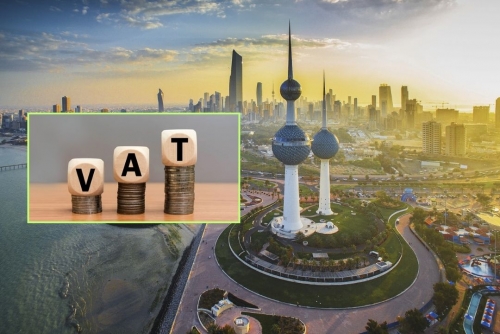Kuwait Eyes VAT Introduction as GCC Nations Drive Economic Reform
TDT | Manama
Email: mail@newsofbahrain.com
Kuwait is considering the implementation of value-added tax (VAT) as Gulf Cooperation Council (GCC) nations advance tax reforms to diversify revenue streams and align with global economic standards, according to local media reports.
The move follows similar initiatives in neighboring GCC countries. Saudi Arabia and Bahrain have already increased their VAT rates to 15% and 10%, respectively, while Qatar and Kuwait are expected to introduce VAT soon. The UAE has had a standard 5% VAT rate in place since 2018. These measures reflect a regional shift towards reducing reliance on oil revenues and creating more sustainable income sources.
A Milestone in Economic Transformation
The introduction of VAT marks a significant step in the GCC's economic transformation, providing governments with additional resources to invest in infrastructure, public services, and sustainable development projects. This aligns with global trends as the region modernizes its economies and reduces dependence on hydrocarbons.
In addition to VAT, GCC nations are adopting the OECD-endorsed global minimum corporate tax rate of 15%, targeting multinational corporations with revenues exceeding €750 million. This initiative is designed to combat tax avoidance and ensure fair contributions from companies operating in historically low-tax jurisdictions, such as Dubai and Manama.
Regional Tax Developments
The UAE has already implemented a 9% corporate tax on profits exceeding AED 375,000 while maintaining exemptions for small and medium enterprises (SMEs) and tax-free zones to sustain its competitive edge. Kuwait, along with other GCC nations, has adopted a 15% profit tax rate. Bahrain plans to align with global tax regulations by 2025.
Saudi Arabia and Oman have joined the OECD framework, signaling a unified approach to corporate taxation across the GCC. Qatar, which maintains a 10% corporate tax, has also hinted at future reforms.
Balancing Reform with Business Appeal
Despite these tax reforms, the GCC remains attractive to businesses due to its no-income-tax policy. While Oman has considered introducing personal income tax for high earners, most GCC nations remain committed to preserving a tax-free environment for individuals.
To enhance compliance and efficiency, the region has embraced digital tax initiatives. Saudi Arabia and the UAE have implemented e-invoicing systems to reduce fraud and streamline business operations, underlining their commitment to modernizing tax systems.
Building Resilience and Sustainable Growth
These reforms are expected to bolster economic resilience, attract investment, and support job creation. By diversifying revenue sources and aligning with global standards, the GCC is positioning itself as a hub for sustainable growth and innovation in the global economy.
Related Posts

